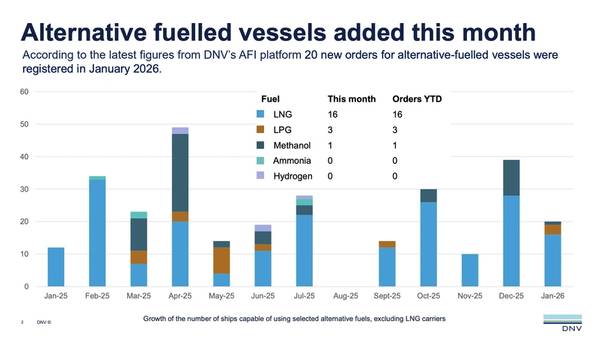
According to the latest figures from DNV’s Alternative Fuels Insight (AFI) platform, a total of 20 new orders for alternative-fueled vessels were placed in January 2026. Activity continues to be dominated by LNG-fueled container vessels, which accounted for 16 of these orders, with one methanol-fueled offshore vessel and three LPG vessels making up the remainder.“This is a relatively positive start to the year in the alternative-fueled space…
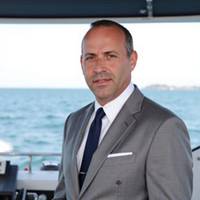
VPS appointed Neil Chapman as the company’s Managing Director of the Americas.Chapman has a wealth of experience in Testing and Inspection, having worked for most of the major TIC companies during his 40 year career. More recently he has held…

The European Union has awarded funding to support the development of carbon capture, utilization and storage (CCUS) in the Øresund region, backing a cross-border project aimed at accelerating renewable energy use and enabling the production of sustainable fuels…
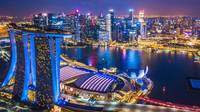
Singapore posted record port performance in 2025, supported by resilient global trade and fuel offtake.The nation achieved a record of 3.22 billion gross tonnage (GT) of vessel arrivals and 44.66 million TEUs of container throughput in 2025 – a 3…
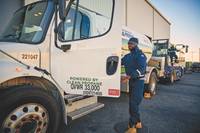
With lower emissions and proven reliability, it’s the ready-now solution for cleaner port operationsAs demand for cleaner energy grows, port authorities and terminal operators face the challenge of finding environmentally friendly options without increasing budgets or sacrificing productivity…

A new report from the Getting to Zero Coalition identifies 25 new green shipping corridors – trade routes designed to demonstrate and scale novel zero-emission fuels, vessels, and technologies – launched this last year, expanding the global total to 84 active initiatives…

The Waterborne Technology Platform has welcomed the EU’s Sustainable Transport Investment Plan (STIP) which it says is key in facilitating the uptake of sustainable alternative fuels.The European Commission published the STIP on November 5,…

The Documentary Committee of BIMCO has adopted a Methanol Annex to its Bunker Terms 2018. The annex is the latest addition to the BIMCO portfolio of contracts and clauses that support the maritime industry’s transition towards alternative fuels and decarbonization…

The Global Centre for Maritime Decarbonisation (GCMD) and the International Association of Ports and Harbours (IAPH) have signed a two-year partnership agreement aimed at accelerating the decarbonization of the maritime sector.IAPH has a global…

In a recent sustainable fuel panel discussion, I once again found my self sucked into the sustainable fuel chicken and egg conundrum.I have discussed it before; shipowners will not buy ships that use a fuel for which no viable supply chain exists…
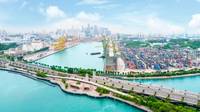
A consortium led by Keppel Ltd. has been appointed by the Energy Market Authority (EMA) and Maritime and Port Authority of Singapore (MPA) to conduct the next phase of the project to develop a low- or zero-carbon ammonia solution on Jurong Island…
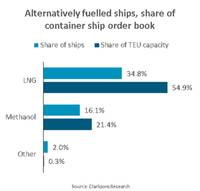
“As of end August 2025, 534 container ships are on order which will be able to use alternative fuels upon delivery. These represent 53% of ships on order and 77% of the TEU,” says Niels Rasmussen, Chief Shipping Analyst at BIMCO.In addition to these alternatively-fuelled ships…

New insights from DNV’s Maritime Forecast to 2050 indicate that the number of alternative-fuel-capable vessels in operation is set to almost double by 2028.By 2030, the alternative-fuelled fleet will be able to burn up to 50 million tonnes of…
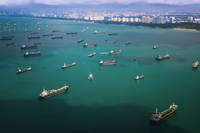
Singapore's marine bunker fuel sales in July climbed to their highest in more than one and a half years, official data showed on Thursday.Sales at the world's largest refuelling hub for ships totalled 4.92 million metric tons in July this year…
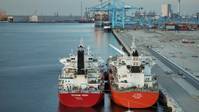
An ammonia bunkering pilot has been undertaken between two vessels at a terminal in the port of Rotterdam.The pilot, conducted on April 12, involved transferring 800 cubic meters of liquid, cold ammonia at -33 degrees Celsius between two ships…



